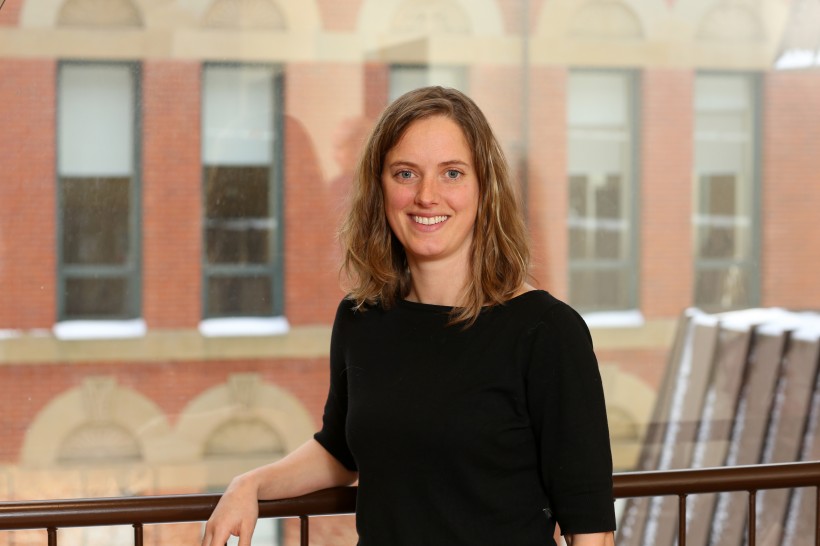What’s striking about interviewing Caitlin Pierlot today is just how much she has grown as an entrepreneur in 18 months.
Pierlot is the co-founder and CEO of Covina Biomedical, a Halifax company that is developing a non-toxic bone cement to help osteoporosis patients who’ve broken bones.
The company first gained attention in October 2015, when it won the $45,000 first place in the BioInnovation Challenge, the annual pitching competition for life sciences companies in the region.
The company has made considerable gains in the last year-and-a-half. It has raised about $350,000 through the First Angel Network. Pierlot and her cofounder Brett Dickey are now in the final stages of building on that funding and closing what they hope will be a $1-million equity funding round.
Meanwhile, the company has been accepted into the Canadian Technology Accelerator in Boston, a program offered by the Canadian Trade Commissioner Service to help Canadian startups access foreign markets.
Most important, Pierlot has been plotting a clear path to market for the medical device company. She’s developing in painstaking detail a seven-phase plan to move through the regulatory process and produce something the company can sell to customers.
It’s a sign that she and Dickey, who seemed so new to the entrepreneurship space when they competed in the Challenge, have taken on a lot in the past 18 months.
“After the big push and all the public attention we got around the BioInnovation Challenge, we thought it would die down and we can putter along as we had before, but things just don’t work that way,” Pierlot said in an interview. “It feels like we’re still in the rush. It’s been fast-paced for sure.”
Covina grew out of research conducted at the Dalhousie University laboratory headed by Daniel Boyd, assistant professor of biomedical engineering.
The lab received $1.7 million in funding from ACOA’s Atlantic Innovation Fund in 2011 to research “non-invasive bone augmentation”.
Appili Lands $2.8M in AIF Funding
That research led to the Covina product — a non-toxic bone cement that can be injected into the vertebrae of osteoporosis patients who have suffered a fracture. There are now 700,000 such fractures a year in the U.S., and Biofix is pioneering a minimally invasive procedure to cure them that would be inexpensive for hospitals and convenient for patients.
Pierlot is proud that, as the company has evolved, the basic product has not changed at all. In the next year, she and Dickey will take Covina through seven phases — things like concept development and design planning — so it will be ready to apply for regulatory approval in about a year.
Another thing that hasn’t changed for Covina is the core team, comprised of Pierlot, Dickey, Boyd and Bob Abraham. Boyd and Abraham are also the co-founders of ABK Biomedical, which aims to improve efficiency and safety when treating women for uterine fibroids, or benign tumours, in the uterus.
ABK is a more mature company than Covina, and Pierlot said her company has benefited immeasurably because Boyd and Abraham have helped Covina in navigating the complex path of bringing a medical device to market.
“We’ve really benefited in learning from them in terms of the hurdles and landmines along the way,” said Pierlot.
“We have a lot of heads up that when we head in a certain direction, this is a hurdle we might hit.”
Now Dickey is spending a lot of time in the Boston area, gaining knowledge and a network in one of the world’s biggest markets for medical innovation and commercialization. But Pierlot stresses that Covina is and will remain a Nova Scotia-based company
“We feel strongly about being a Nova Scotian company and we want to build the company here. As much as one thinks that going down to Boston is taking away from that, it’s actually doing the opposite.
“One of our major asks is to help us figure out how to build a company in Nova Scotia and get support and finance we need from the U.S . We don’t want it to be a defensive story, we want it to be a strong story.”










